
A father-of-two with “incurable” cancer said he could soon have “no evidence” of the disease less than a year after being diagnosed, thanks to a combination of non-traditional treatments.
Dale Atkinson, 36, who lives in Reading, Berkshire, with his long-term partner, Ana, and their two sons, Axel, three, and Cole, 18 months, recalled suffering with heartburn and acid reflux for a number of years, before he eventually struggled to swallow solid foods.
After seeking further tests, Dale, who ran his own consulting business but has stepped back because of his health, said he was diagnosed with stage four oesophageal cancer in October 2024, when a near 10-centimetre “inoperable” tumour was discovered.
He was also told the disease had spread to other areas of his body.
With a prognosis of just 11 and a half months, he says, Dale was determined to better his chances of survival and said he began researching non-traditional, “science-backed” treatments, which he could use to make his body “more susceptible and receptive” to the chemotherapy and immunotherapy he received via the NHS.
While Dale is not claiming to have found a cure, he estimates he has spent more than £100,000 on private treatments not covered by the NHS, including oxygen therapy, off-label drugs and genetic sequencing.
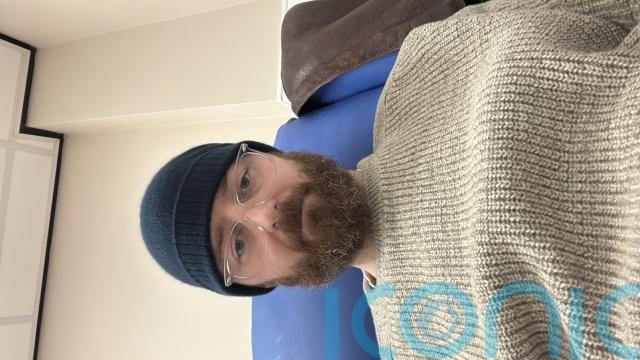
In July, less than a year after being diagnosed, Dale said he was told his tumour has “completely vanished” and a scan will soon determine if he has “no evidence of disease”.
Dale is petitioning for the UK Government to introduce a budget to allow patients to access such treatments via the NHS, ensuring cancer care is “based on need, not wealth”.
“I’m now looking at being no evidence of disease within the next couple of months – before this, as far as the NHS was concerned, I was absolutely incurable,” Dale told PA Real Life.
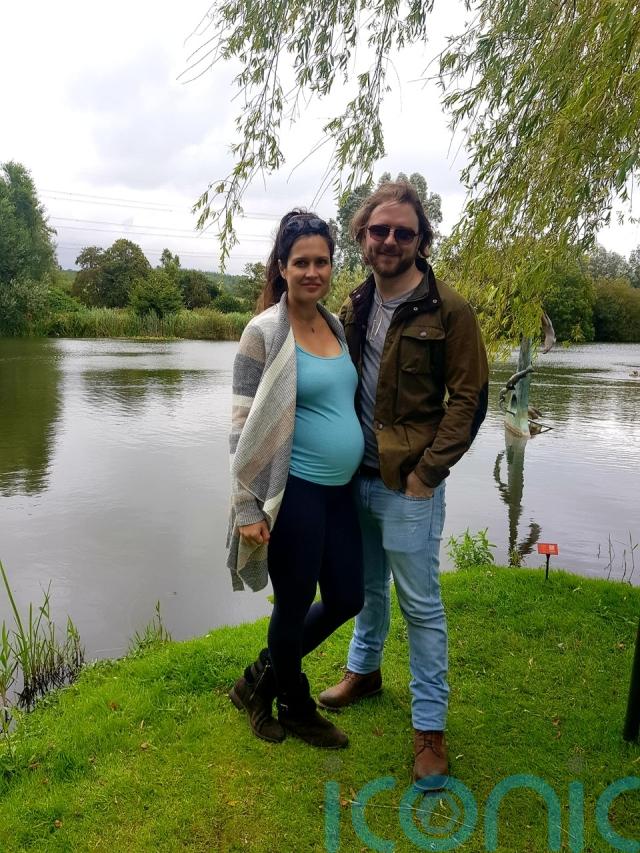
“I would be in a hospice by now, staring at my own death.
“It’s not a cure, I’m not naive, but to go from incurable to potentially NED (no evidence of disease) in under a year, that’s not luck, that’s strategy.”
The NHS says complementary and alternative medicine is treatment that falls outside of mainstream healthcare, and anyone considering this should seek medical advice or consult their GP first.
Some treatments are based on principles and an evidence base that are not recognised by the majority of independent scientists, while others have been proven to work for a limited number of health conditions.
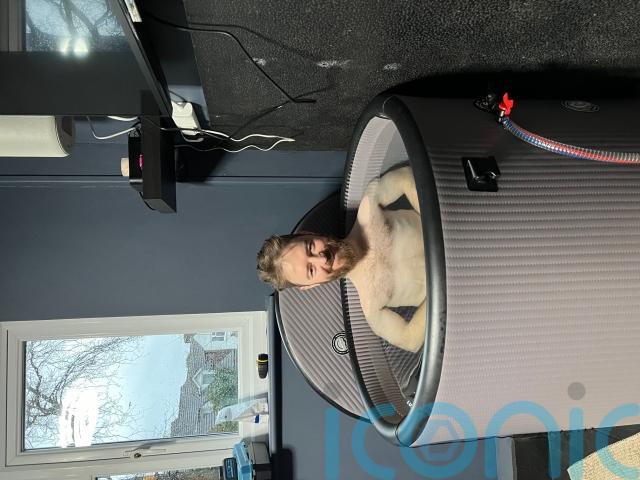
Dale said he had been suffering from heartburn and acid reflux for a number of years, first visiting his GP in 2018.
“Ana and I had a sociable, alcohol-based lifestyle – we didn’t think it was that uncommon that I had consistent heartburn,” he said.
Over the years, Dale said his symptoms got “progressively worse” and he would wake in the middle of the night “choking on (his) own stomach acid”.
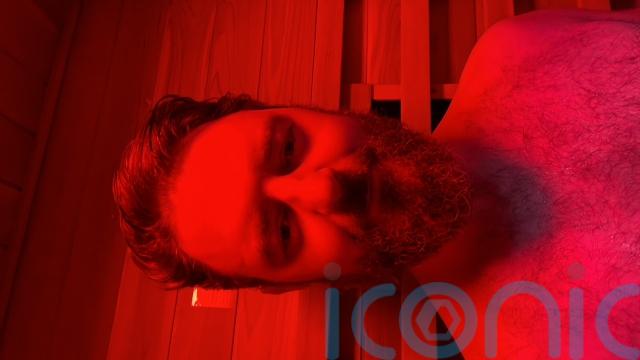
He said he underwent blood and stool tests, and his results came back clear.
After moving to Reading from London in 2022, Dale visited a new GP, after having issues swallowing food.
“Larger bits of food would get stuck and I’d need a lot of water to try and force it down,” he said.
Dale’s GP referred him for an endoscopy, where a camera was placed down his throat, but he said doctors struggled to insert it properly.
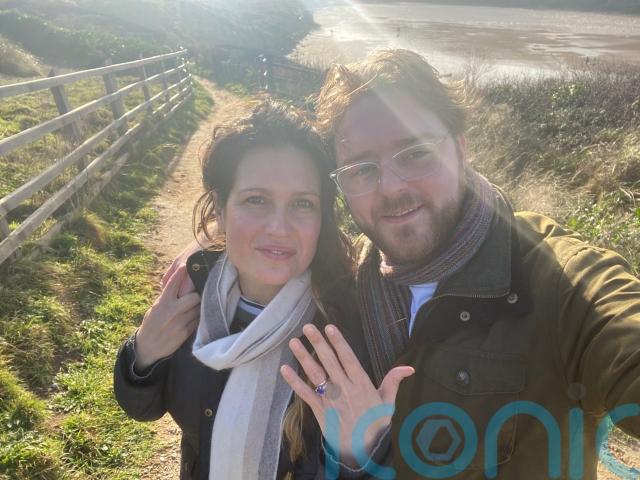
“The whole room went a bit quiet, they had found a tumour which was noticeable on the screen,” he recalled.
Dale said he was diagnosed with a stage four metastatic oesophageal adenocarcinoma on October 15 2024, when an “inoperable” tumour measuring about 10cm was found near the junction between his stomach and oesophagus.
He was later told his cancer was “particularly aggressive” and it had metastasised to his pancreas, aorta and lymph nodes.
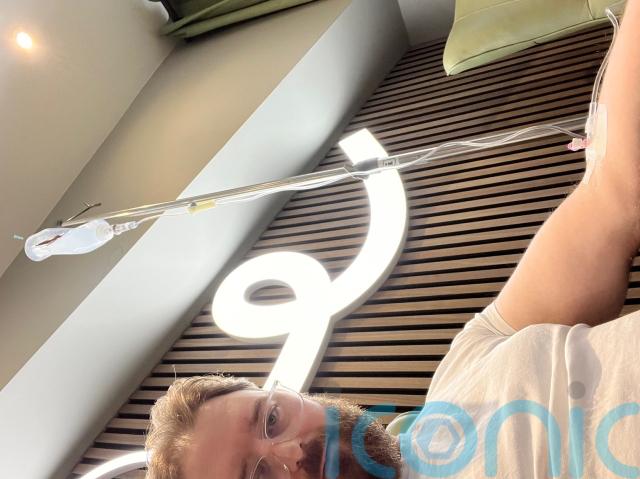
Dale said he was given 11 and a half months to live and was told his treatment plan on the NHS would be palliative care, with the aim of improving his prognosis where possible.
“It was an initial period of shock and disbelief, and being scared,” he said.
He added: “For me though, the NHS is not at fault in any way, shape or form – things like this happen unfortunately.”
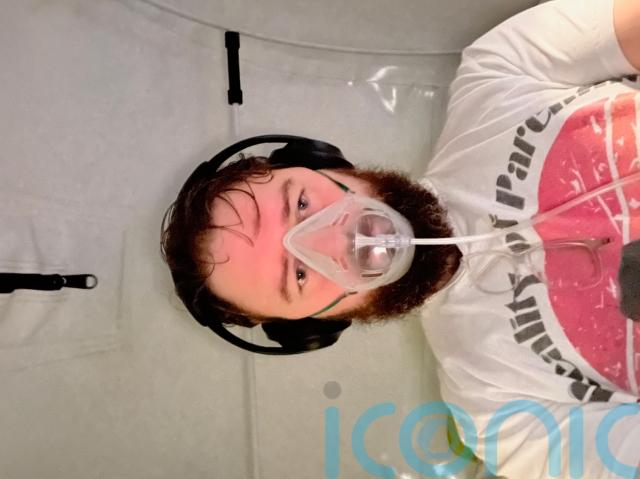
Determined to beat his odds, Dale said he began researching various treatment pathways, and he said he met integrative oncologists and stage four cancer survivors around the country.
With their help, he formulated a plan which would “combine NHS treatment with additional science-based therapies”, described as “complementary care”, with the aim of “bolstering the effectiveness” of the chemotherapy and immunotherapy he started receiving via the NHS in late 2024.
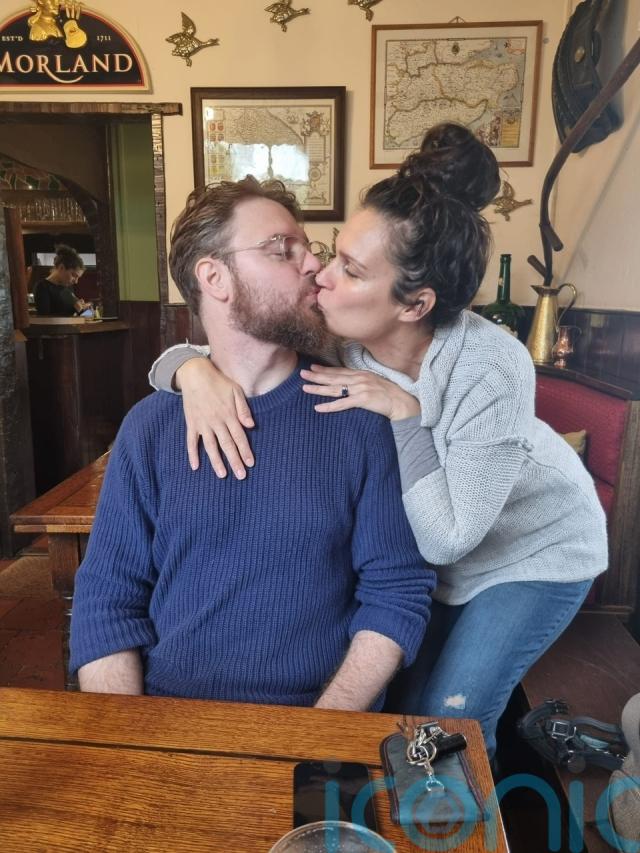
Dale paid privately for off-label medications and tailored supplementation, as well as hyperbaric oxygen therapy, which involves breathing pure oxygen in a pressurised room, and mistletoe therapy, which he said aids immunity and reduces treatment side-effects.
He said he also discovered “next-generation genetic sequencing”, where biopsies are taken from his tumour to create a list of treatments which would target his cancer more effectively.
At the peak of his treatment, Dale said he was taking “over 100 tablets” a day, adding: “It sounds extreme, but each one had a reason and we adapted the plan every month based on my test results.”
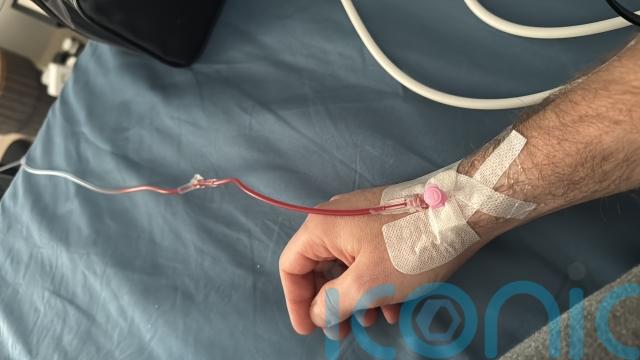
Overall, Dale estimates he spent more than £100,000 to access private treatments, admitting some avenues were “dead ends”.
“I’ve thrown a lot at this to get me to where I am now, but that shouldn’t be the case,” he said.
“In other countries, like Germany and Switzerland, some of the treatments I have used are completely standard, while here they are viewed as alternative.”
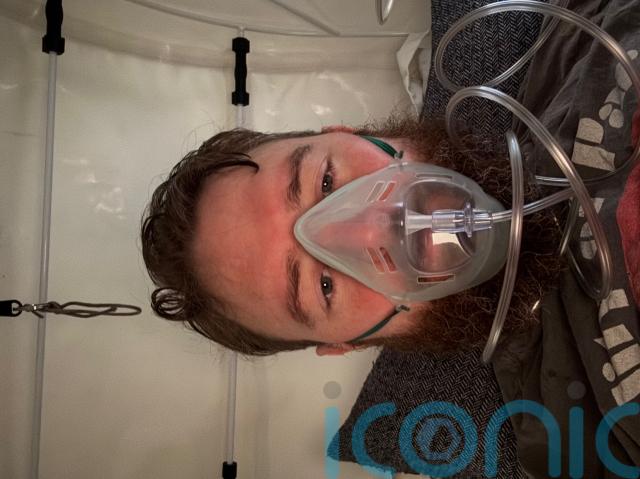
On July 3, less than a year after being officially diagnosed, Dale said he received “very good news” from his oncologist.
“My near-10 centimetre tumour has completely vanished, my metastases are gone and they are putting me forward for a PET scan to see whether I have no evidence of disease,” he said.
“For me, it’s more about my kids and my partner – for Ana to have me here and for my children to have a dad.”
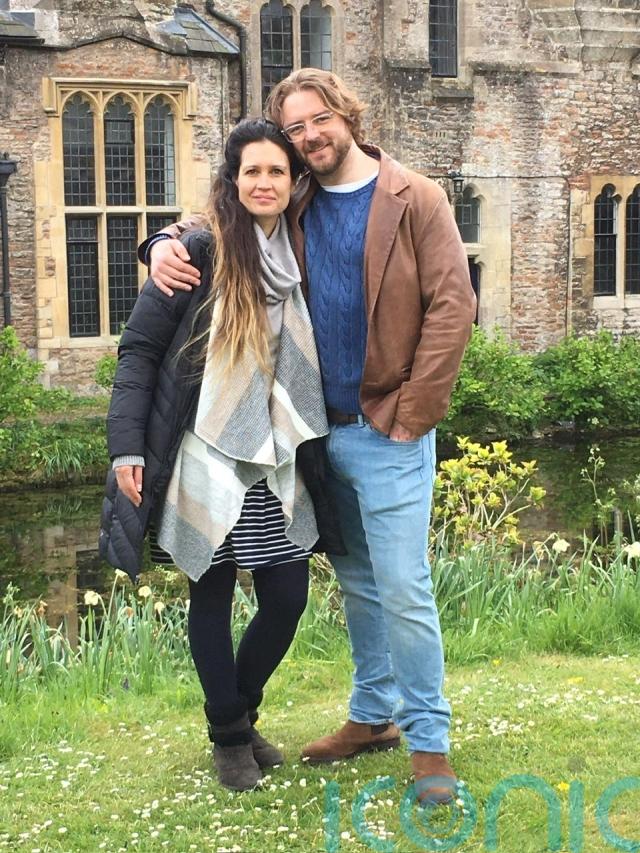
Dale is now petitioning for non-traditional treatments to be made available via the NHS, by calling on the Government to introduce a “personal integrative care budget”, a ring-fenced fund allowing patients to access “evidence-based complementary therapies”.
“I’m not claiming to have found a cure and I know recurrence is a risk for me, but the whole aim behind this is about trying to make some of these science-backed therapies accessible for people who don’t have the means,” he said.
“Cancer care should be based on need, not wealth.”
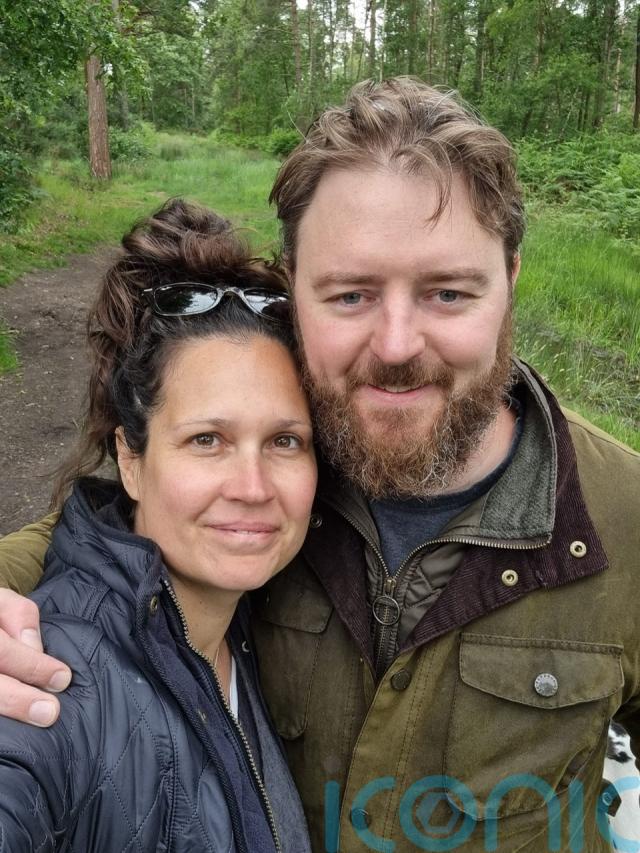
A Department of Health and Social Care spokesperson said: “The NHS follows advice from the independent National Institute for Health and Care Excellence (Nice) on which treatments to fund for diseases such as cancer, based on the latest scientific evidence.
“Our 10-Year Health Plan will transform cancer care across the NHS, making it easier for patients to access screening, diagnostic and treatment nearer to where they live, backed by the latest technology, to drive up this country’s cancer survival rates.”
To find out more, visit Dale’s petition here: change.org/p/enable-access-to-integrative-cancer-care-via-the-nhs
Subscribe or register today to discover more from DonegalLive.ie
Buy the e-paper of the Donegal Democrat, Donegal People's Press, Donegal Post and Inish Times here for instant access to Donegal's premier news titles.
Keep up with the latest news from Donegal with our daily newsletter featuring the most important stories of the day delivered to your inbox every evening at 5pm.